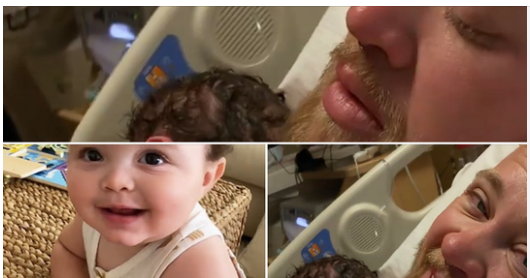In today’s society, using someone’s preferred name and pronouns is a fundamental aspect of showing respect and acknowledging their identity. However, not everyone adheres to this practice, often clinging to outdated norms or disregarding individuals’ gender identities.
Bennett Kaspar-Williams, a 37-year-old non-binary individual, has firsthand experience with this issue. In October 2020, Kaspar-Williams gave birth to their son, Hudson, via cesarean section. Despite identifying as male at the time and using he/him/his pronouns, Kaspar-Williams encountered challenges at the hospital when nurses repeatedly misgendered them, referring to them as a mother rather than a father.

Kaspar-Williams began their transition in 2014, after realizing they were transgender in 2011. Although they underwent top surgery, they chose not to undergo procedures on their lower body. The journey of pregnancy and childbirth was both fulfilling and challenging for Kaspar-Williams, who felt disheartened by medical staff assuming their gender and mislabeling them as a mother.
Despite specifying their gender on medical forms, the nursing staff continued to misgender Kaspar-Williams during interactions. This experience sparked Kaspar-Williams’ advocacy for recognizing that childbirth is no longer necessarily tied to gender identity.

Kaspar-Williams expressed their distress over being consistently misgendered during childbirth, highlighting the importance of disconnecting womanhood from motherhood. They emphasized that being born with a uterus does not guarantee conceiving or carrying a child, and that not all people who carry children identify as mothers.
Kaspar-Williams’ story underscores the complexities of identity and the importance of respecting individuals’ self-identification. By sharing their experiences, Kaspar-Williams aims to break down barriers and challenge societal norms that often marginalize transgender individuals.


